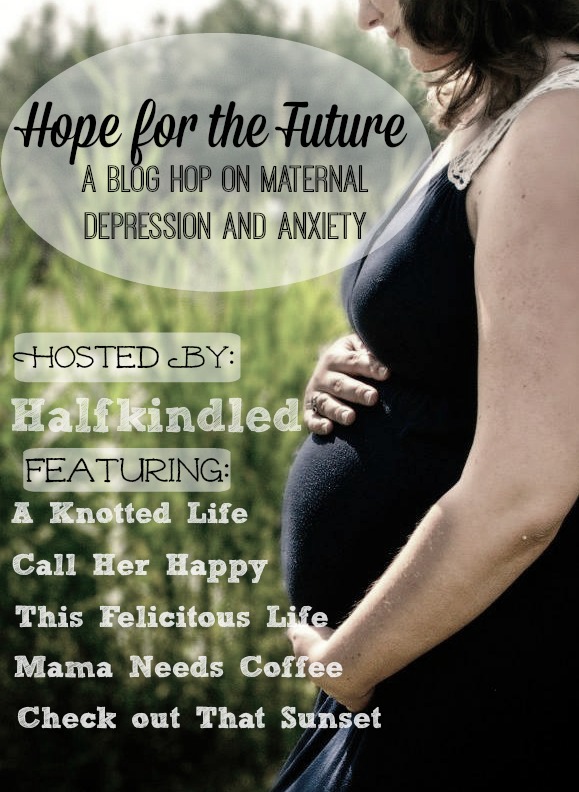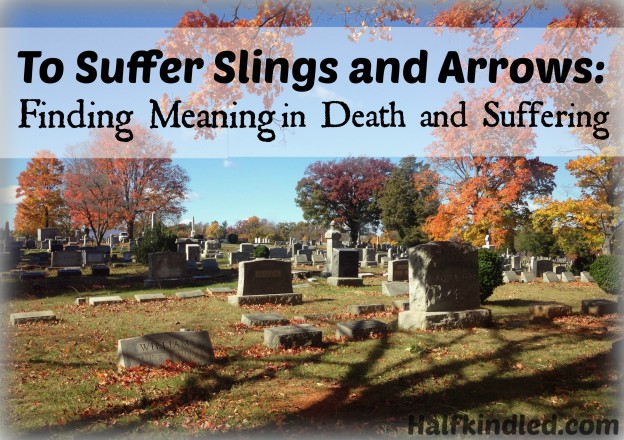Today I am honored to be joined by some immensely talented ladies (who also happen to be among my favorite bloggers) to commemorate May as Maternal Mental Health Month. We all wanted to come together to provide a resource for women to read the stories of multiple catholic mothers who are having to bear the difficult crosses of depression and anxiety, both to provide support for those who are struggling with them, and to raise awareness on the topic for those who have not personally experienced it.
Dear fellow suffering mother,
I see you, forcing the smile as you hold your precious young child. You were up in the wee hours of the night, putting the baby back to sleep again. Your exhaustion is palpable, your nerves racked, and your newly altered body a stranger to you.
The sense of Isolation encloses you, trapping you in its prison. You miss the company of other adults, but you are afraid to reach out for help. In your mind all of your friends have their own problems to deal with. You think to yourself, “I should be able to do this on my own. This is my responsibility. I just need to try harder, be stronger, and things will come together.” Except despite all or your best efforts, you aren’t able to reach the goals you have set for yourself. You decide to not leave the house until you get your act together.
You spend immense amounts of time and energy, worrying about your baby’s welfare, spending long sessions with “Dr. Google” trying to make sure that everything is normal. Now that there is this magical invention of the internet, you think that if you just do enough research and work, you can be the perfect mother for your child.
Any deviation from your predetermined philosophy of “THE ONLY RIGHT WAY TO PARENT,” results in an internal barrage that you can’t silence. Inability to exclusively breastfeed your child? He will grow up to have a whole assortment of difficulties from asthma to low IQ, and it is all your fault. Baby wearing makes you claustrophobic? Clearly you care more about your own anxieties than your baby’s sense of security. Or at least this is what you tell yourself as you lie awake, exhausted, but unable to sleep.
You feel like you are walking on eggshells all the time, afraid that at any moment you might snap and release a barrage of tears or anger.
And then panic attacks come. You feel like you will die. You feel your throat closing, dizzy from lack of oxygen, fearing the worst.
Then there is the shame. “Why do I feel like this? I love my baby more than life, but I hate being a mother.” You convince yourself that you can’t tell anyone what you are feeling, for fear of judgement.
Besides, surely this is just baby blues, you say to yourself, “I have no right to go get treatment when there are so many women who are surely suffering worse than I. It is just a testament to how pathetic I am that I can not handle this with ease.”
Out of fear of suffering a stigma attached to a “maternal mental illness,” you keep quiet. You keep your head down and just try to survive each day. Who knows what horrible things could happen if you reached out for help. In your vivid imagination every scenario ends poorly. They might put you on medication that makes you psychotic, or worse take your children away from you.
Perhaps you even start to think that anyone else could do a better job as mother or wife. You wonder if maybe your family would be better off without you . . .
Stop. Its not true. I know, I have been there too.
You are NOT a failure. You are a beautiful, hardworking, loving mother, who is giving her all. A mother who is suffering from an illness. And it is NOT your fault.
Despite what other’s might say, you did not chose this. This isn’t some spiritual weakness that you can cure through more prayer. Clinical depression is not despair, nor anxiety a lack of trust in God. They are biological and psychological conditions, not something you are choosing to bring upon your family because you are “evil” or “weak.”
You bear a heavy cross. Like all other crosses you didn’t pick yours out nor can you choose when to put it down. You are not weak for needing help. Even Christ had help carrying His cross.
Please don’t make the mistake of thinking you are not deserving of receiving help! Don’t prolong your suffering, thinking that these trials are just something that needs to be offered up. Parenthood presents its own myriad set of challenges and trials for your sanctification, but this does not have to be one of them. You deserve to be well again.
I am not going to insult you by saying if you just do x, y, or z you will feel all better again. Each person’s situation is unique and deserves a custom approach to treatment. Find a professional that you are comfortable with and they will be able to work with you to find the course of action that is the best fit for you. Some people are able to find relief just by diet changes, or progesterone shots; others find therapy to be immensely helpful; others find that taking medication makes a world of a difference; still others do a combination of the above approaches. Find what works best for you and don’t let anyone shame you for how you choose to treat your illness.
More than anything, I want you to know that you are not alone. How I wish I could be sitting with you and talking about these things face to face, instead of separated by screens. I wish I could be there in person to comfort and encourage you. I don’t pretend to have all, or even most of the answers. Heck, I am still trying to navigate this myself. But somehow these struggles become easier when they are shared together.
You are not alone and you are not weak. You are a fighter. You are more than a fighter. You are a mother. That is the strongest synonym for brave that I can think of.
Your Sister In Christ,
Katherine
Please take some time to check out what the other ladies participating in the blog hop have to say!
Please share this article with anyone you think it might help!
Have you or someone you know ever suffered from depression or anxiety? What was your experience like? What did you learn through the process?








